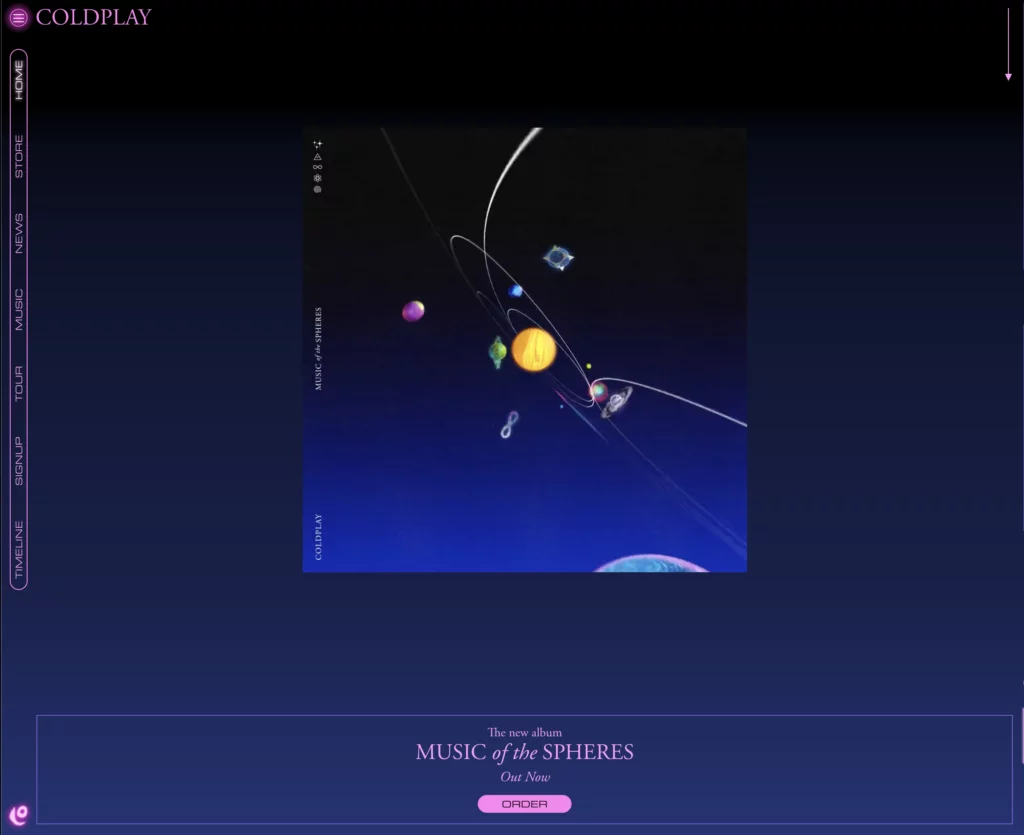Coldplay is undeniably one of the most popular bands worldwide, with a massive following and numerous awards. However, there exists a polarizing phenomenon – why do people hate Coldplay? This question has sparked debates and controversies among music enthusiasts, critics, and casual listeners. While some admire Coldplay for its soulful lyrics and captivating melodies, others criticize it for being too mainstream or repetitive. In this blog, we will delve into the reasons behind people’s love-hate relationship with Coldplay, exploring the factors that contribute to this intriguing divide in musical tastes.

Introduction: Understanding Coldplay’s Polarizing Appeal
Coldplay, a British rock band formed in 1996, has garnered a significant following worldwide. Despite their massive commercial success and critical acclaim, Coldplay has also faced a wave of criticism and polarizing opinions, leading to the question: why do people hate Coldplay?
The Musical Style and Sound
One of the reasons behind the polarizing appeal of Coldplay is their distinct musical style that blends alternative rock, pop, and post-Britpop elements. Some listeners find their songs emotionally evocative and anthemic, while others criticize them for being too mainstream and formulaic.
Lyrical Themes and Songwriting
The band’s lyrics often revolve around themes of love, relationships, and introspection, resonating with many fans. However, critics argue that Coldplay’s lyrics can be seen as overly sentimental or cliché, leading to mixed reactions from audiences.

History of Coldplay: Evolution of the Band’s Sound and Image
Coldplay, formed in 1996 in London, has evolved over the years, garnering both critical acclaim and criticism for their music. With each album release, the band’s sound has shifted from alternative rock to a more pop-oriented style.
The Early Years (2000s)
In the early 2000s, Coldplay gained popularity with their debut album “Parachutes” (2000), known for its sad and introspective themes. Songs like “Yellow” and “Trouble” captured audiences worldwide, establishing the band’s signature sound.
Their following albums, “A Rush of Blood to the Head” (2002) and “X&Y” (2005), further solidified their place in the music industry. Hits like “Clocks” and “Fix You” showcased their evolving sound.
Mainstream Success and Criticism
As Coldplay embraced a more mainstream sound in albums like “Viva la Vida or Death and All His Friends” (2008) and “Mylo Xyloto” (2011), they faced criticism for becoming too commercial and predictable.
Some fans and critics argue that Coldplay’s music lacks innovation and authenticity, leading to the controversial question: Why do people hate Coldplay?

Analysis of Coldplay’s Music: Themes, Lyrics, and Musical Style
When trying to understand why people hate Coldplay, it’s essential to analyse their music, themes, lyrics, and musical style.
Themes in Coldplay’s Music
Coldplay’s music often touches on themes of love, hope, and introspection, resonating with a broad audience seeking emotional connections through music.
The band’s songs frequently explore universal human experiences, focusing on emotional vulnerability and resilience.
Lyrics
Coldplay’s lyrical content is known for its poetic nature, evoking imagery and deep emotions in listeners. Chris Martin’s lyrics often convey messages of optimism, melancholy, or personal growth.
Listeners often appreciate the relatable and heartfelt nature of Coldplay’s lyrical compositions.
Musical Style
Coldplay’s musical style blends elements of alternative rock, pop, and ambient music, creating a unique sound defining the band’s distinct identity.
The band’s instrumentation is characterized by lush melodies, atmospheric textures, and anthemic choruses that have become synonymous with their sound. This image captures the essence of Coldplay’s musical evolution over the years.
View this post on Instagram
Perception in the Music Industry: Critical Reception vs. Popular Success
Perception in the music industry often reveals contrasting viewpoints about critically acclaimed artists and those who achieve massive popularity. This phenomenon is particularly evident in the case of a band like Coldplay.
Critical Reception
When analyzing why people hate Coldplay, it is essential to consider their critical reception over the years. Critics have often praised Coldplay’s musicality, heartfelt lyrics, and ability to create anthemic tracks that resonate with audiences worldwide.
Popular Success
On the other hand, the band’s immense commercial success and mainstream appeal have been points of contention for some music enthusiasts. Their mainstream hits, such as “Yellow,” “Fix You,” and “Viva la Vida,” have catapulted them to global stardom, leading to accusations of selling out or creating music that is too mainstream.
- Despite the divisive opinions, Coldplay continues to fill stadiums and top charts around the world.
- Some argue that the band’s ability to blend catchy melodies with emotional lyrics is precisely what has allowed them to achieve massive success.
Impact on Fans: Emotional Connection and Personal Experiences
When it comes to why people hate Coldplay, the emotional connection fans have with the band plays a significant role. Fans who love Coldplay often cite their deep emotional resonance with the band’s music. Coldplay’s lyrics and melodies have a way of touching the hearts of listeners, creating a sense of profound connection.
Personal Experiences with Coldplay
Many fans have personal stories of how Coldplay’s music has helped them through tough times or provided a soundtrack to their most memorable moments. These personal experiences create a strong bond between fans and the band.
Emotional Impact of Coldplay’s Music
From anthemic hits like “Fix You” to introspective tracks like “The Scientist,” Coldplay’s music evokes a wide range of emotions in its listeners. This emotional rollercoaster keeps fans coming back for more, despite the criticism the band may face.
Societal Factors: Cultural Trends and Peer Influence
In today’s world, understanding societal factors such as cultural trends and peer influence is crucial in unravelling why particular phenomena, like polarization towards Coldplay, occur.
Cultural Trends Impact
Cultural trends significantly shape people’s preferences and dislikes, impacting how individuals perceive bands like Coldplay.
For instance, the evolving music landscape and shifting tastes can lead to varying perceptions of popular bands.
Peer Influence Dynamics
Peer influence is another decisive societal factor that can sway individuals’ opinions regarding music choices, including their attitudes towards Coldplay.
Friends, family, and colleagues can heavily influence which bands someone likes or dislikes, making peer groups crucial in shaping musical preferences.
Comparison with other Bands: Examining Similarities and Differences
When exploring why people hate Coldplay, it is crucial to examine comparisons with other bands to understand the root of this controversy. Various bands have faced similar responses from audiences due to their unique styles and approaches to music.
Similarities with Controversial Bands
One of the similarities Coldplay shares with other controversial bands is their mainstream success despite critical reception. Bands like Nickelback and Maroon 5 have also faced backlash despite commercial success, raising questions about the music industry’s perception.
Differences in Musical Style
Coldplay’s ethereal and emotionally charged songs set them apart from bands known for edgier or more experimental music. While bands like Radiohead and Muse often venture into avant-garde territories, Coldplay’s melodic and introspective approach garners different reactions from audiences.
View this post on Instagram
Addressing Common Criticisms: Debunking Misconceptions and Stereotypes
A common question often arises in music discussions – why do people hate Coldplay? Despite being one of the best-selling music acts worldwide, Coldplay has garnered its fair share of critics and haters. Let’s delve into some common criticisms and misconceptions surrounding the band.
1. Lack of Musical Diversity
One criticism levelled against Coldplay is their perceived lack of musical diversity, with some claiming their songs all sound similar. However, a closer look at their discography reveals that Coldplay has experimented with various genres and musical styles over the years, showcasing a range from indie rock to electronic influences.
2. Overly Commercial Success
Another stereotype attached to Coldplay is their perceived focus on commercial success over artistic integrity. While Coldplay has undeniably achieved commercial success with hit songs and world tours, this doesn’t necessarily diminish the quality of their music or the passion they put into their craft.
Frequently Asked Questions
- Why is Coldplay a controversial band?
- Some people consider Coldplay controversial due to its music style, lyrical content, image, and commercial success.
- What are some common criticisms of Coldplay?
- Some common criticisms of Coldplay include their music being too mainstream, lacking originality, overly emotional, and commercialized.
- Why do some people hate Coldplay?
- Some people may hate Coldplay due to personal preferences, musical taste, or feeling that their music is overplayed and repetitive.
- Is it okay to dislike Coldplay?
- Yes, it is completely okay to have your own musical preferences and to dislike Coldplay or any other band.
- Are there any positive aspects to Coldplay’s music?
- Yes, many fans appreciate Coldplay for their meaningful lyrics, emotional connection in their music, and memorable melodies.
Final Thoughts
After delving into the complexities of the question ‘Why do people hate Coldplay?’, it becomes apparent that opinions on the band are indeed polarizing. While Coldplay’s immense popularity and mainstream appeal have garnered them a massive fanbase, there are also criticisms rooted in perceptions of their music being too ‘safe’ or ‘generic’ for some listeners. However, it’s vital to acknowledge that musical preferences are highly subjective, and what resonates with one person may not necessarily do so for another.
Ultimately, the controversy surrounding Coldplay is a testament to the diversity of tastes within the music landscape. Whether you love them or loathe them, the band has undeniably made a significant impact on the industry, and as with any art form, their music continues to evoke strong emotions and spark endless debates among music enthusiasts.






